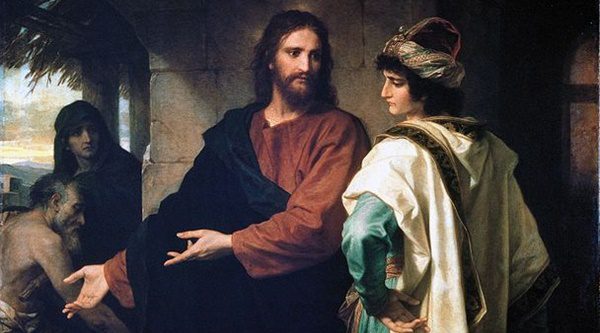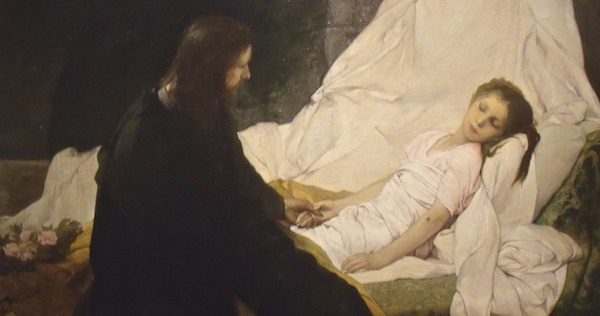In the kingdom of heaven no one is entitled because everything is given gratuitously. It’s all grace!
-Rev. Tom Truby
Pastors have a frequent question when they begin to discover mimetic theory. “That’s great. But how does it preach?”
Reverend Tom Truby shows that mimetic theory is a powerful tool that enables pastors to preach the Gospel in a way that is meaningful and refreshing to the modern world. Each week, Teaching Nonviolent Atonement will highlight his sermons as examples of preaching the Gospel through mimetic theory.
In this sermon, Tom explains the parable of the Vineyard owner. The parable shows that while we tend to know our value and worth in comparison with others, God makes no such comparisons. God gives freely, gratuitously, because “It’s all grace!” For many, this is scandalous to our egos. For others, it’s good news for our souls!
Year A, Proper 20
September 24, 2017
Take What Belongs to You and Go!
Whenever you see “the kingdom of heaven is like…” fasten your seatbelts. You are about to have quite a ride and you are going to be surprised by where the road takes you.
“The kingdom of heaven is like a landowner who went out early in the morning to hire workers for his vineyard.” We could assume the landowner stands for God but we might be wrong. Jesus can’t be depended on to set up simple allegories when he tells stories.
The landowner has work and he needs day laborers. Very early in the morning he goes to the marketplace and finds workers ready to work. They reach an agreement. They will be paid one denarion and they go to the vineyard.
At nine he returns to the marketplace and finds more people standing around doing nothing. These later arriving workers are told they will be paid whatever is right and they agree. They go to work without a contract.
This happens at noon and three and they all go to work. Around five in the afternoon he goes again and even at five he finds people standing around. This landowner must have been a lot like my father who said he just hated seeing people idle when fences needed to be fixed, chores needed doing and there was still light in the sky. Usually I was the one discovered to be standing around.
The landowner asks these five o’clock loafers why they are just standing around. They reply, “Because nobody has hired us.” Of course, we know they weren’t there to be hired until at least 3:05 p.m., the last time he had come to gather laborers. He hires them with an hour remaining in the day.
“When evening came, the owner of the vineyard said to his manager, ‘Call the workers and give their wages, beginning with the last ones hired and moving on finally to the first.’” The deliberate sequencing arouses our curiosity. Usually you start with the ones who worked the longest and you pay them and they go home. The ones hired later in the day get paid later and this avoids comparison, rivalry and conflict for those working without a contract. Any human resource manager would know the story deviates at this point from best practices.
When those who were hired at five in the afternoon come to the front of the line, each received a denarion. They get the same as those who have worked all day. How do you feel about that? Is that fair? It gets under my skin. Does this mean the kingdom of heaven isn’t fair and you just have to accept that; God does what God wants? Get used to it!
The day laborers who worked the longest weren’t so passive. When they received their denarion they grumbled against the landowner and wondered why those who worked all day in the hot sun got the same pay as those who worked an hour. Where is Jesus going with his story and how does it illustrate the kingdom of heaven?
The landowner replied to one of them, “Friend, I did you no wrong. Didn’t I agree to pay you a denarion? Take what belongs to you and go. I want to give to this one who was hired last the same as I give you. Don’t I have the right to do what I want with what belongs to me? Or are you resentful because I’m generous?”
Yes, those that worked since six that morning are resentful because the landowner is generous. I think most of us would be. It bugs us when it looks to us like our neighbor got a better deal than we did. How many of you have bought an item and then it went on sale a week later for a half of what you paid for it? You want to go back into that store and demand the money you paid in excess of what your neighbor did. And you would be told that you had agreed to the price when you paid it and the store owes you nothing.
Of course, sometimes we are the recipient of the sale price and we feel smug about that. It seems to give us pleasure to know we got a better deal than our neighbor. The truth is that our eye is always on our neighbor. If they get a better deal than we did, we resent them. If we get a better deal than they, we feel smug. The root of our resentment and smugness is our rivalry with our neighbor. It’s a human thing we all seem caught in and the story brings it to our awareness.
There are a couple of things I want us to note. The text specifically says the landowner replied to one of them. He did not address the whole group of early morning laborers. He singles out an individual and speaks directly to that one. This individual has the honor of being addressed and not ignored even though the response given comes from the landowner’s perspective and contradicts the grumbling laborer. Is this saying that in the kingdom of heaven each person is taken seriously and no one is ignored? Even those who are in fundamental disagreement with the values of the kingdom receive a hearing and get a response.
Second, the landowner calls him “friend”. The landowner has a benevolent attitude toward this laborer, doesn’t stand above him and clearly isn’t over against him. The door to relationship is wide open from the landowner’s side. Is Jesus saying in the kingdom of heaven all are friends and there is no us and them, no duality, no over against the other?
As is usual in Matthew the tagline throws new light on the preceding story. “So those who are last will be first. And those who are first will be last.”
Just before Jesus told his story a wealthy young man had come to Jesus asking how he can have the good life. Jesus could see that the young man felt entitled to the good life because he was materially blessed so Jesus told him that he should sell his positions and give to the poor. Only then would he be able to receive the good life as a gift and abandon his spirit-killing sense of entitlement. The young man walked away leaving Jesus to shake his head in sadness.
Meanwhile, Peter has been watching this and thinks that because he and the disciples have left everything, something this young man wasn’t willing to do, they are entitled to the good life. First we have entitlement from the side of those who have much and now we have entitlement from those who have left it all. A sense of entitlement is the issue for the wealthy young man, for Peter and for all the disciples. They are like those who because they worked all day, think they should be paid more than their contract stipulated. In comparison with others they think they are owed more than the rest.
The story is designed to demonstrate that any sense of entitlement totally misses the point of the kingdom of heaven. In the kingdom of heaven no one is entitled because everything is given gratuitously. It’s all grace! All the servants, whether they worked twelve hours or one, were given one denarius, the amount they need for a full life on that day. Any comparing with their neighbor detracted from the quality of their own life and blocked their openness to receiving the grace moving toward them. We can only enter the good life when we let go of all entitlement and claim what is ours already. Jesus called this good life the kingdom of heaven.
“Take what belongs to you and go,” the landowner said. It’s yours for the taking; it’s the good life you’ve been looking for. As we move toward the kingdom of heaven we will come to see this more and more. Amen.
Image: Flickr. Creative Commons License.
Stay in the loop! Like Teaching Nonviolent Atonement on Facebook!












